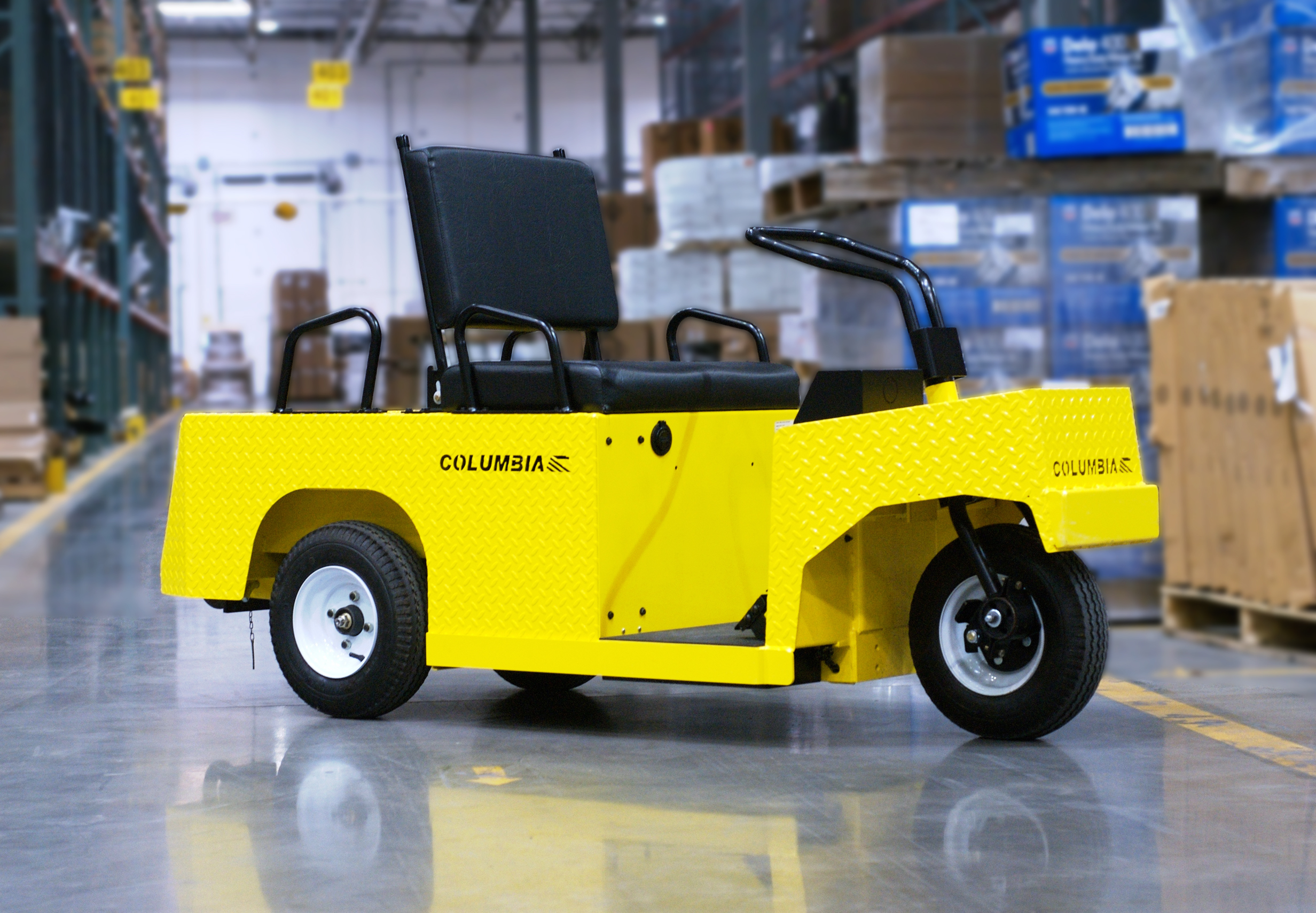In the ever-evolving landscape of warehouses, manufacturing plants, and other large facilities the shift towards sustainability and efficiency is becoming increasingly prevalent. One notable stride in this direction is the adoption of electric utility vehicles. Columbia’s electric fleet allows for your facility to have greater efficiency and less of an environmental impact. These versatile and eco-friendly machines are transforming the way businesses operate within large industrial spaces.
1. Reduced Environmental Impact:
Electric utility vehicles are a cleaner and greener alternative to their traditional, fossil fuel-powered counterparts. By eliminating tailpipe emissions and reducing the carbon footprint, businesses can contribute to a healthier environment. This move towards sustainability aligns with the global push for eco-friendly practices and helps companies meet their environmental goals.
2. Cost Savings:
While the initial investment in electric utility vehicles might be higher than traditional vehicles, the long-term cost savings are substantial. Electric vehicles generally have lower operating costs, thanks to the efficiency of electric motors and the lower cost of electricity compared to traditional fuels. Moreover, governments and local authorities often provide incentives or tax credits for businesses adopting electric vehicles, further enhancing cost-effectiveness.
3. Quiet Operation:
In large warehouses or manufacturing plants where noise levels can be a concern, electric utility vehicles offer a quieter alternative. The absence of loud engine noises allows for a more peaceful and focused work environment. This can be especially beneficial in areas where employees are working in close proximity to these vehicles, enhancing overall workplace satisfaction.
4. Enhanced Maneuverability:
Electric utility vehicles are known for their precise and smooth maneuverability. This is particularly advantageous in large industrial spaces where navigating through narrow aisles or congested areas is a common challenge. The ability to make tight turns and navigate efficiently contributes to increased productivity and reduced operational bottlenecks.
5. Lower Maintenance Requirements:
Electric vehicles generally have fewer moving parts than traditional vehicles, leading to lower maintenance requirements. With fewer components prone to wear and tear, businesses can expect reduced downtime and maintenance costs. This reliability is crucial in warehouse and manufacturing settings where downtime can significantly impact overall productivity.
6. Scalability and Customization:
Electric utility vehicles come in a variety of sizes and configurations, catering to the diverse needs of warehouses and manufacturing plants. Whether it’s a compact electric forklift or a larger utility cart, businesses can choose vehicles that align with their specific requirements. This scalability allows for customization based on the unique layout and operational needs of the facility.
The adoption of electric utility vehicles represents a progressive step towards a more sustainable, cost-effective, and efficient future for warehouses and manufacturing plants. As businesses continue to prioritize environmental responsibility and operational excellence, electric vehicles from Columbia are poised to play a pivotal role in shaping the landscape of industrial transportation. Embracing this technology not only benefits the bottom line but also contributes to a cleaner and more sustainable industrial ecosystem.
